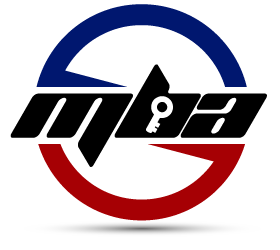Mastering Business Analysis
Your key to advancing your career as a business analyst and beyondWelcome to Mastering Business Analysis.
I’m Dave and I’m passionate about helping Business Analysts achieve their full potential and advance in their careers.
 I’ve been a business analyst or in related roles since the mid-1990’s and I’ve experienced the struggles of ambiguity on projects, conflicting priorities, unresponsive stakeholders, and absent sponsors. Through hard work, and a lot of mistakes along the way, I’ve learned how to overcome these challenges and more. I have coached and mentored other Business Analysts to enhance their skills and achieve success and now I want to share with you tips, techniques, and best practices to make you a better business analyst.
I’ve been a business analyst or in related roles since the mid-1990’s and I’ve experienced the struggles of ambiguity on projects, conflicting priorities, unresponsive stakeholders, and absent sponsors. Through hard work, and a lot of mistakes along the way, I’ve learned how to overcome these challenges and more. I have coached and mentored other Business Analysts to enhance their skills and achieve success and now I want to share with you tips, techniques, and best practices to make you a better business analyst.
My Story: The Accidental Business Analyst
I was a Business Analyst long before I held that title. My first job out of college was at an insurance company in the operations area. With my technical skills, I gravitated toward those aspects of the job and led a few small teams in operational improvements, process changes, and automation.
My first official role with the title of Business Analyst came when my division was purchased by another company and I was hired by the new company. At the time, I didn’t even know what a Business Analyst was. Luckily, I was the only Business Analyst at that company and was able to make my role what I thought it should be.
After struggling through many challenges, I started exploring the BA role as well as the roles of Project Manager, Quality Assurance, and others. I studied and practiced facilitation, prototyping, requirements elicitation techniques, metrics, coaching, and anything else I thought would help me in my role. Through studying, practicing, and experimenting for years, I developed my Business Analyst skills. I have mentored, trained, and managed teams of Business Analysts and through my role as an Agile Coach, I’ve helped Product Owners, Scrum Masters, and others along their journeys.
Why Mastering Business Analysis?
When people ask me what I do, I give different answers depending on the day. Sometimes I tell them I’m a cat herder. Yes, I herd cats for my organization. With competing priorities and conflicting stakeholder desires, that’s what it feels like. Sometimes it can feel like you’re trying to hold back the ocean with a broom. It can be challenging.
I’ve gone through several iterations of describing my role. Initially, I was a translator between the Business and Technology. As I learned more about my role as a Business Analyst, I started describing my role as a Bridge Builder. I build bridges between the customer and technology, between opportunity and solution. Most recently, I feel “BA” doesn’t stand for Business Analyst, it stands for Business Advisor. As a successful BA, you advise the business and help your organization achieve its goals.
It’s important to note that some of the Most commonly cited reasons for project failure, that is, scope creep, poor requirements and the like, reside with the BA. Advancing the skills and core competencies of the BA community is my goal. And through that process, elevate the role of the business analyst so that you can advance in your career. The core skills of a business analyst (communication, analysis, business knowledge, solution assessment, problem solving) are all highly transferable skills and skills that are needed at all levels in the organization – right up to C level executives. If you sharpen those skills and execute with high quality, the sky is the limit for your career.
What about the “mastering” part? Dan Pink in his book, Drive – The Surprising Truth About What Motivates Us, defines mastery as getting better and better at something that matters . . . and Business Analysis matters. I has the opportunity to attend a keynote speech by Dan Pink had he reminded me that mastery, or the journey towards mastering something, is one of the three keys to achieving a high degree of motivation and personal satisfaction in our work. The other keys are autonomy and purpose.
Certainly BAs needs some degree of autonomy – the freedom to choose the techniques we use and choosing how and when we achieve our goals. A sense of purpose refers to tying what we do to something that matters to us.
There’s an old fable about two brick layers. A person came upon the first bricklayer and asked them what they were doing. The bricklayer said they were laying bricks. A short distance away, they saw another bricklayer and asked them what they were doing. The second bricklayer looked towards the sky responded “I’m building a cathedral”. Finding a sense of purpose in what you do is critical to your success. Make sure the destination is meaningful to you.
I invite you to join me on a journey exploring Business Analysis along the road toward mastery.
